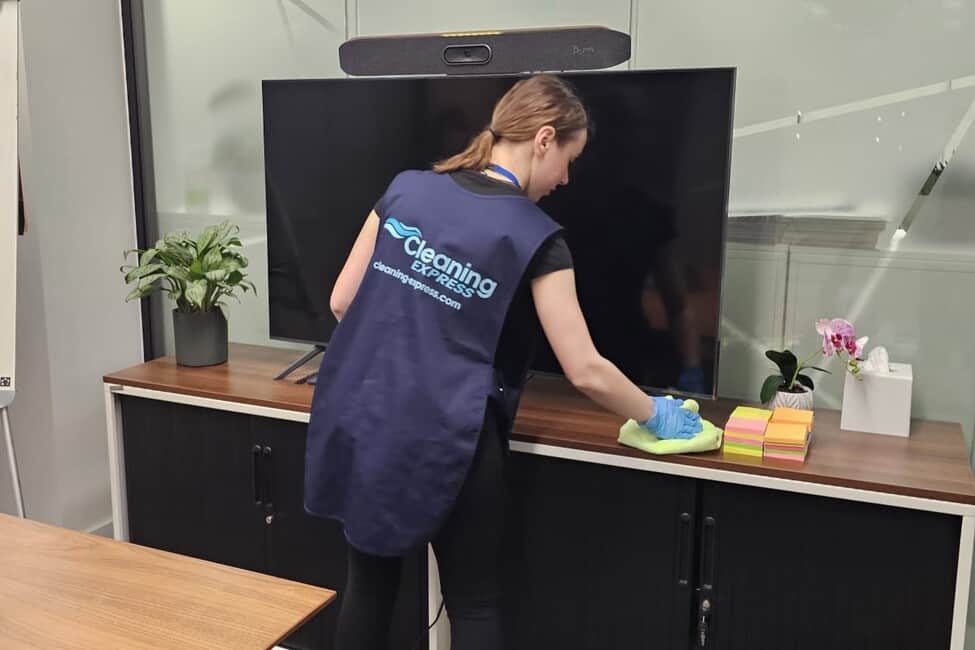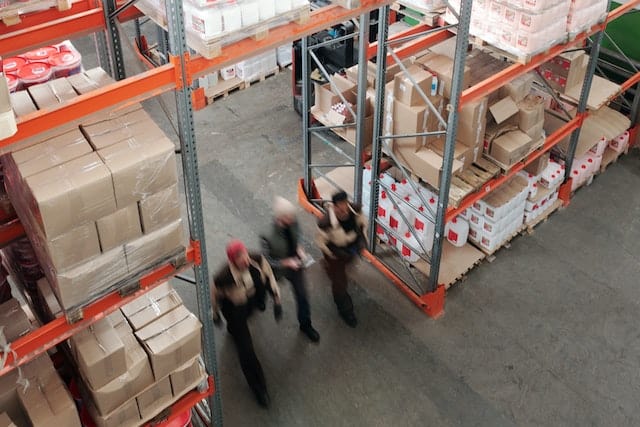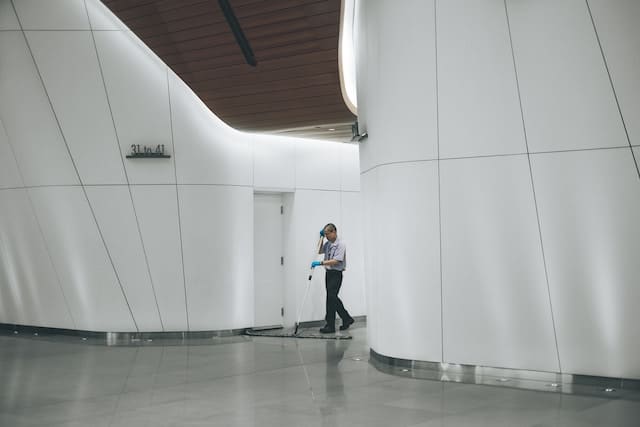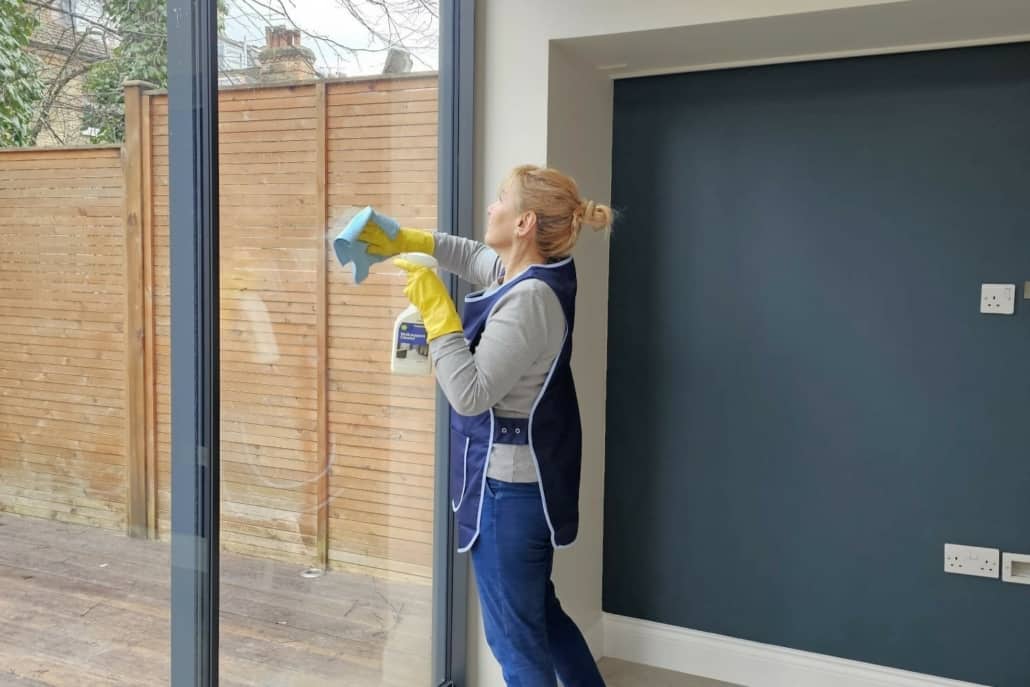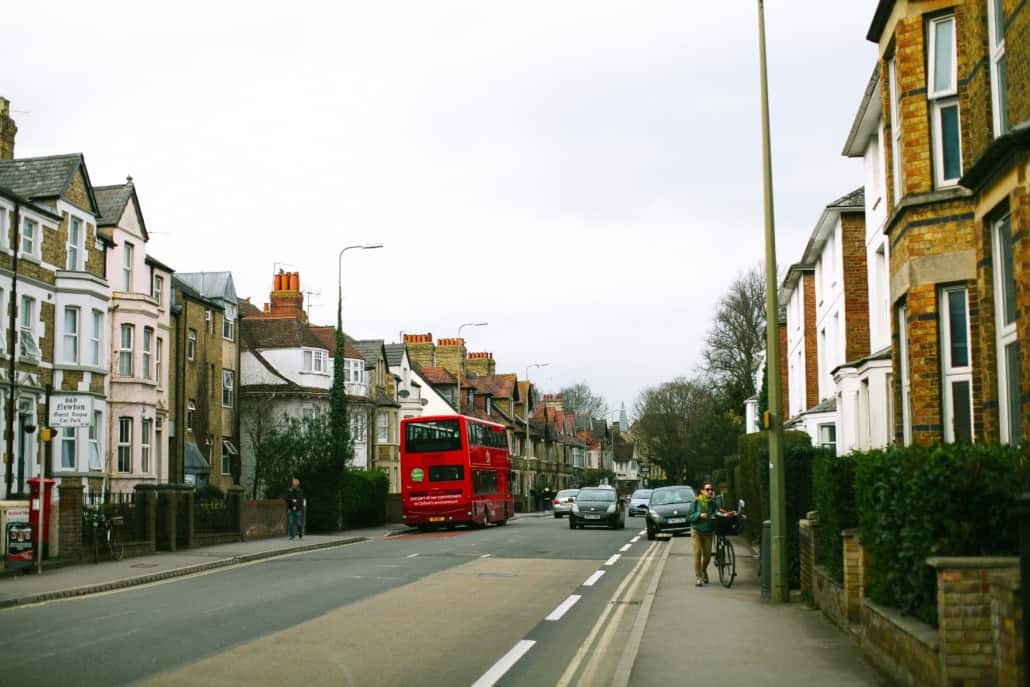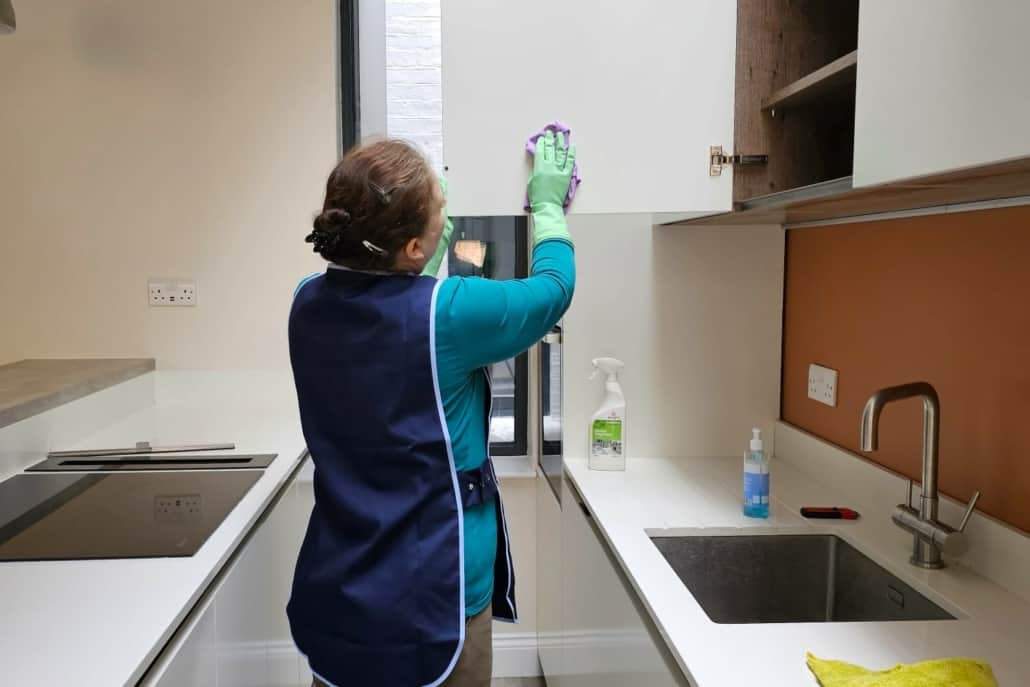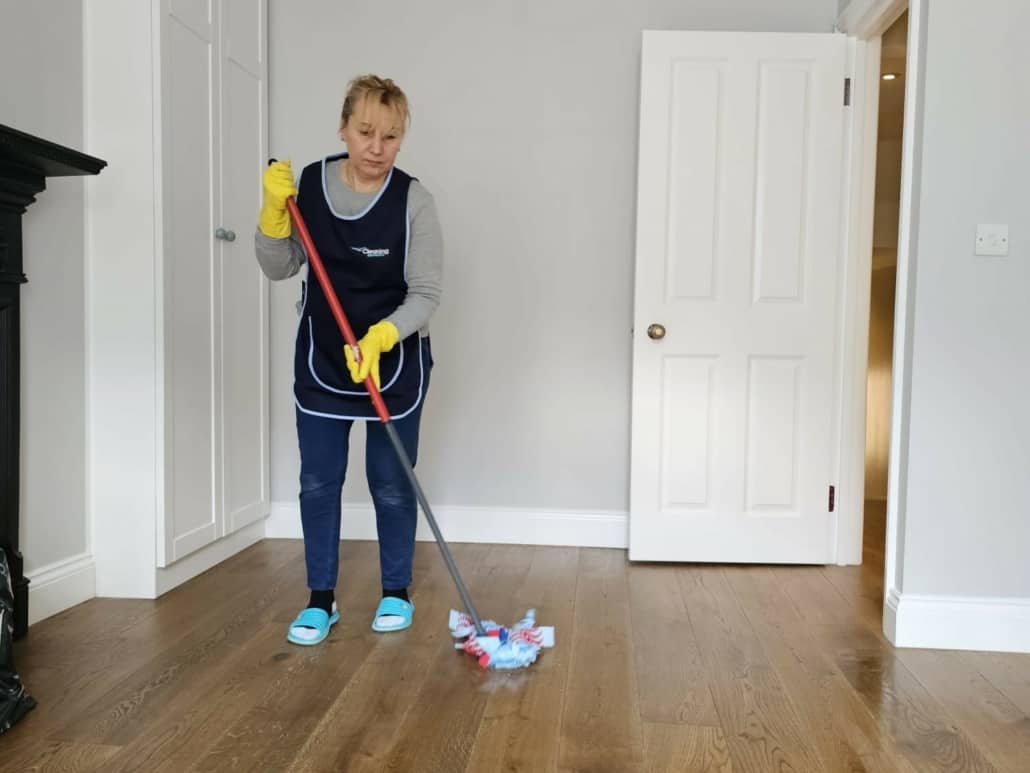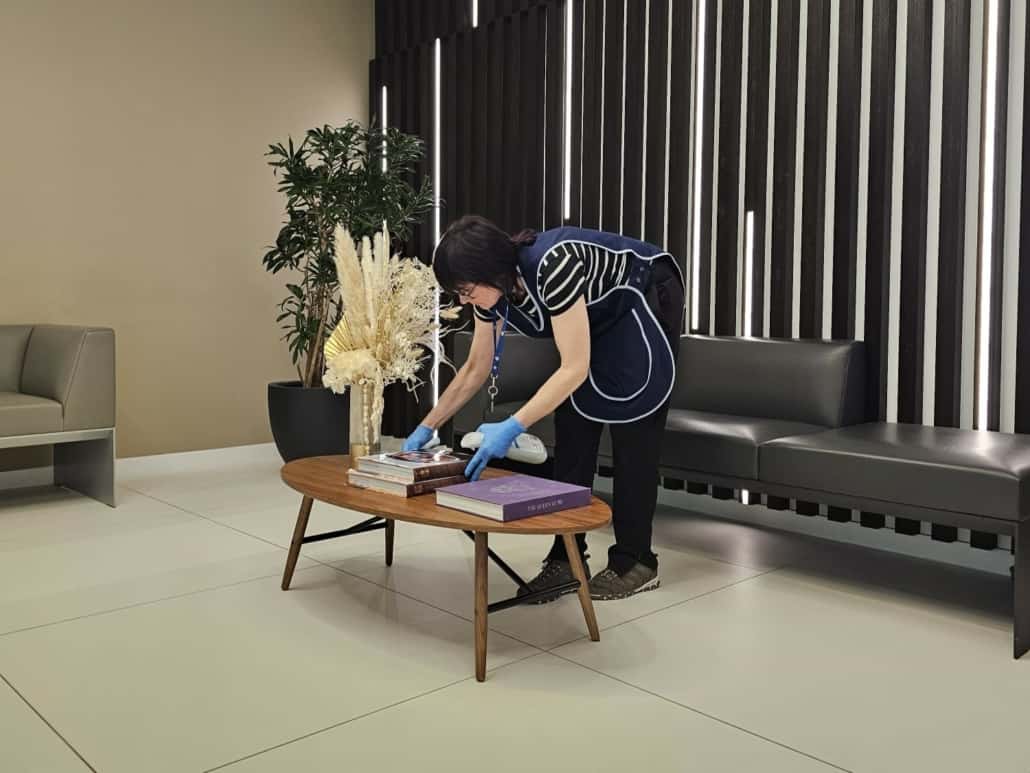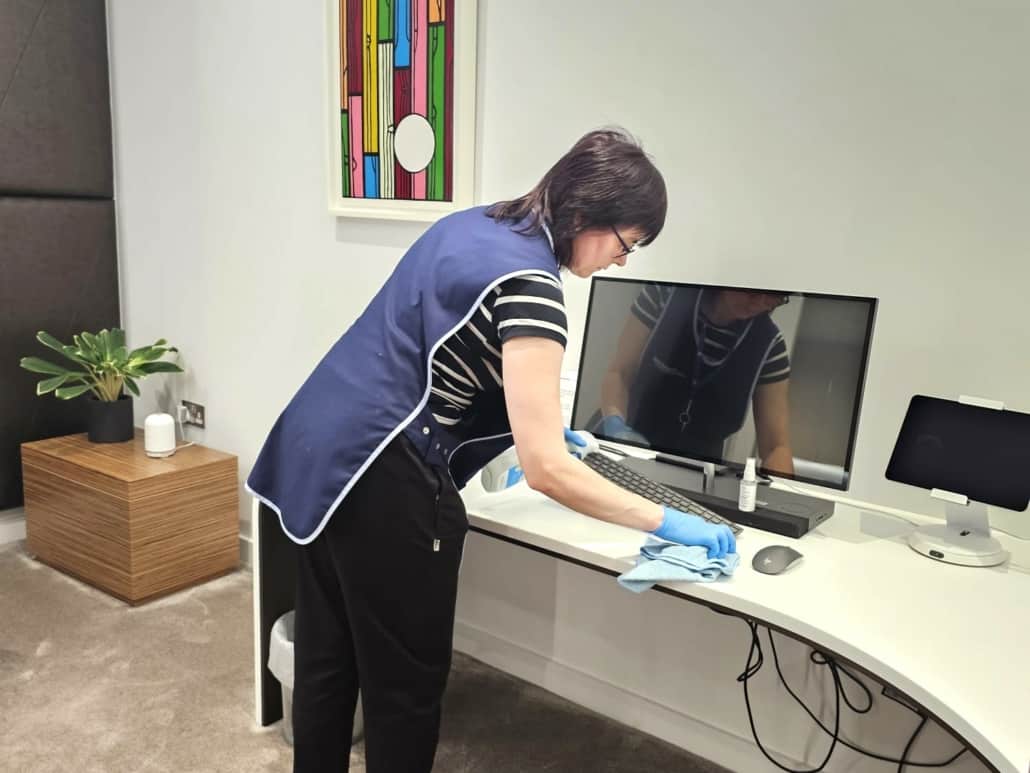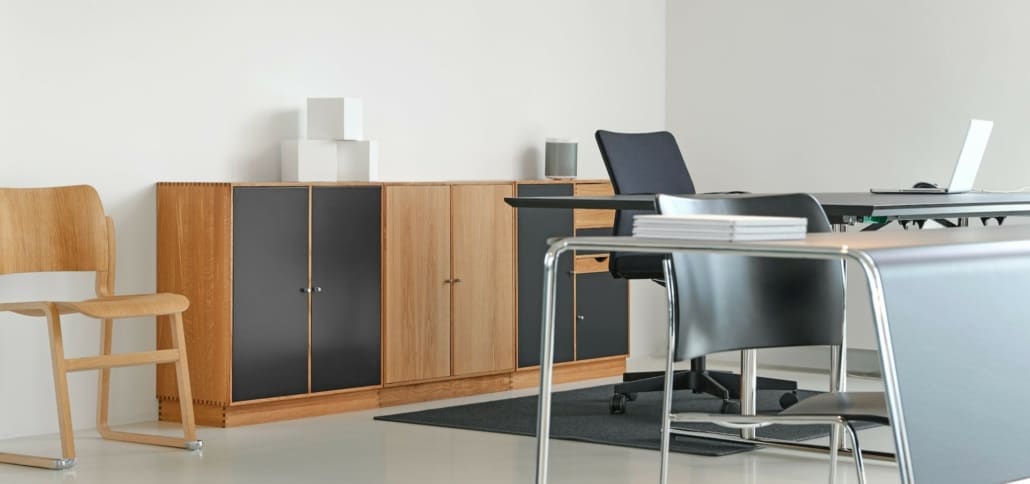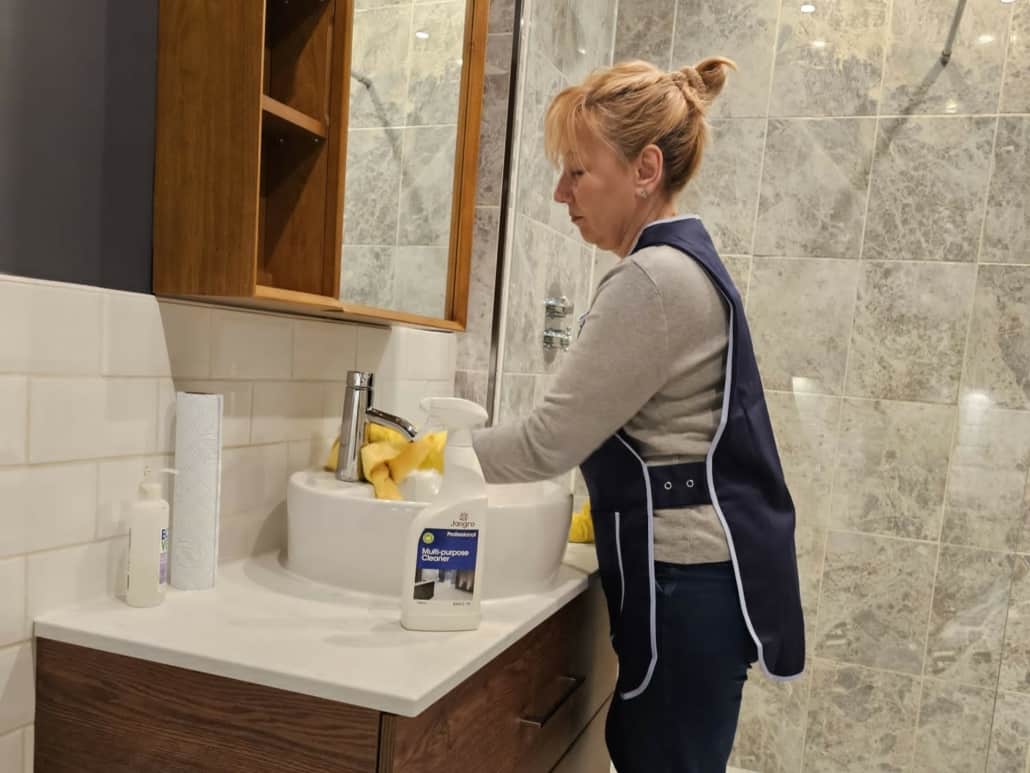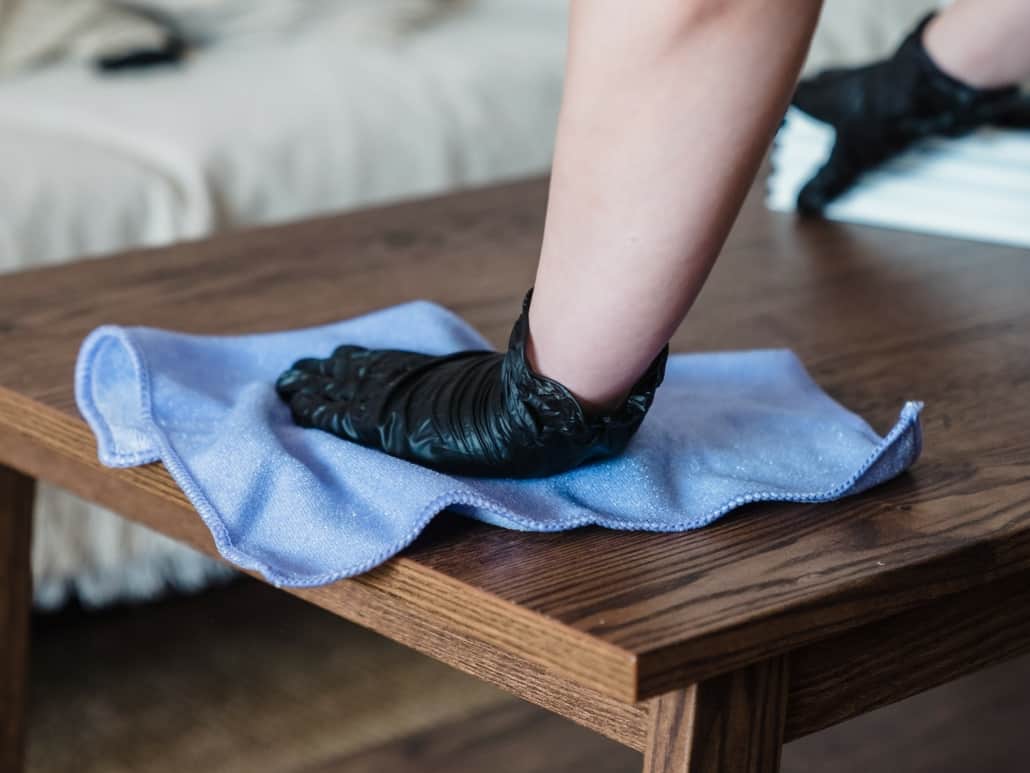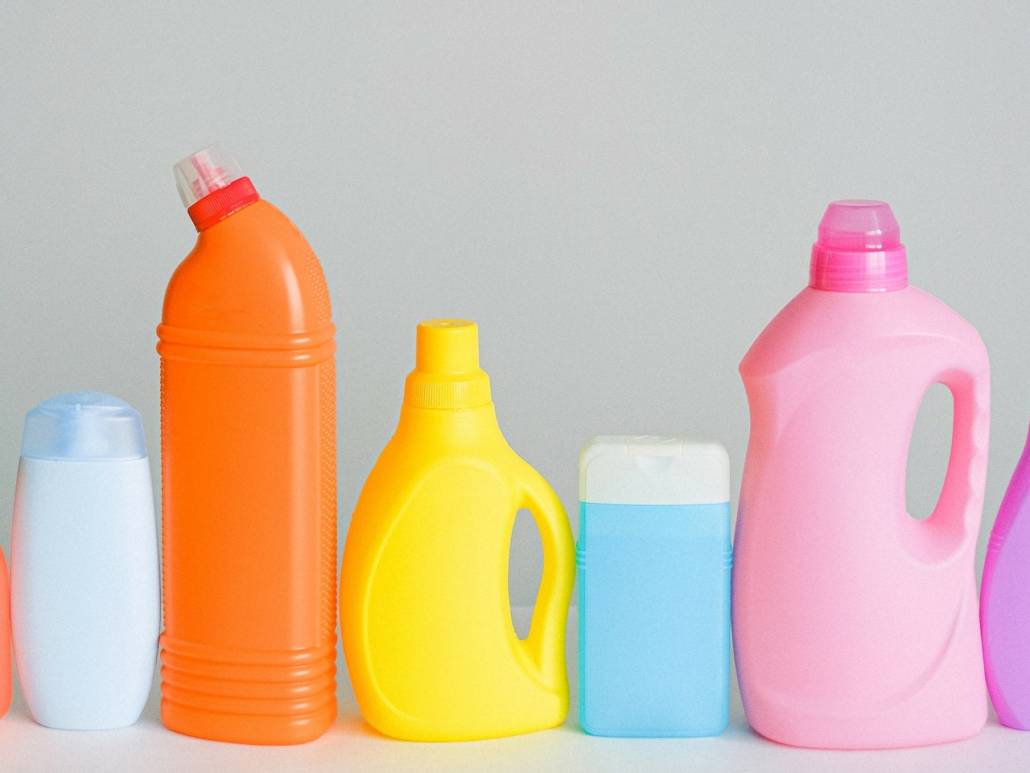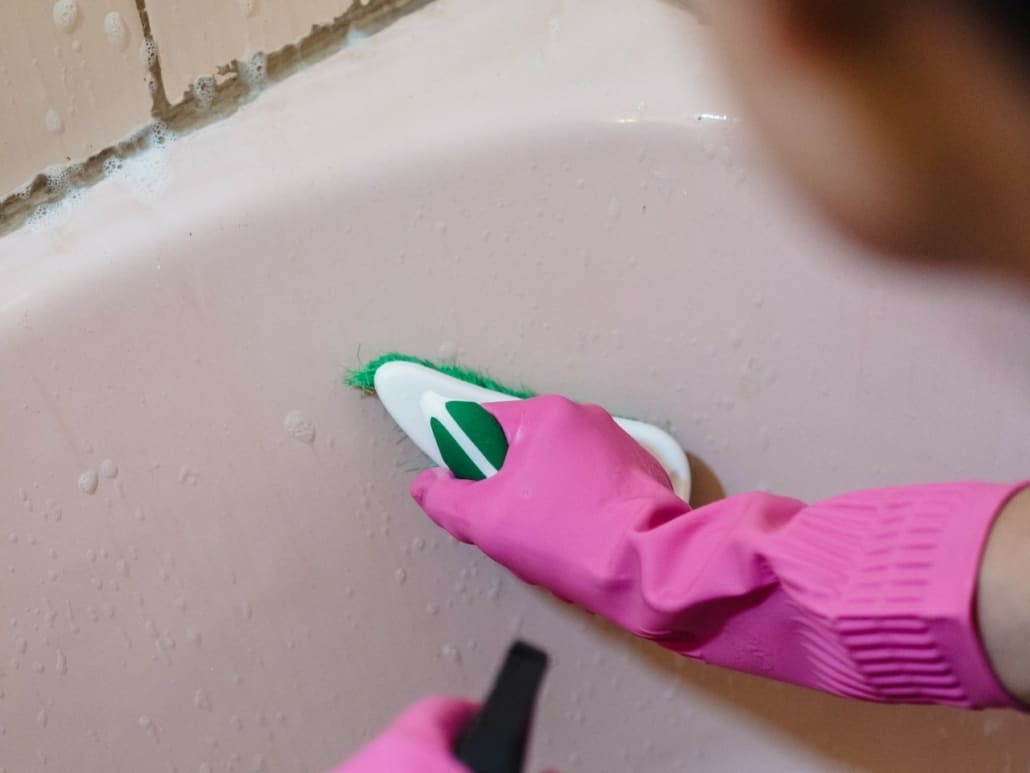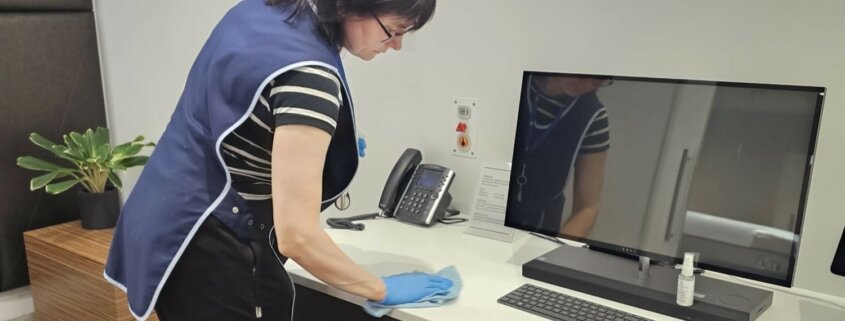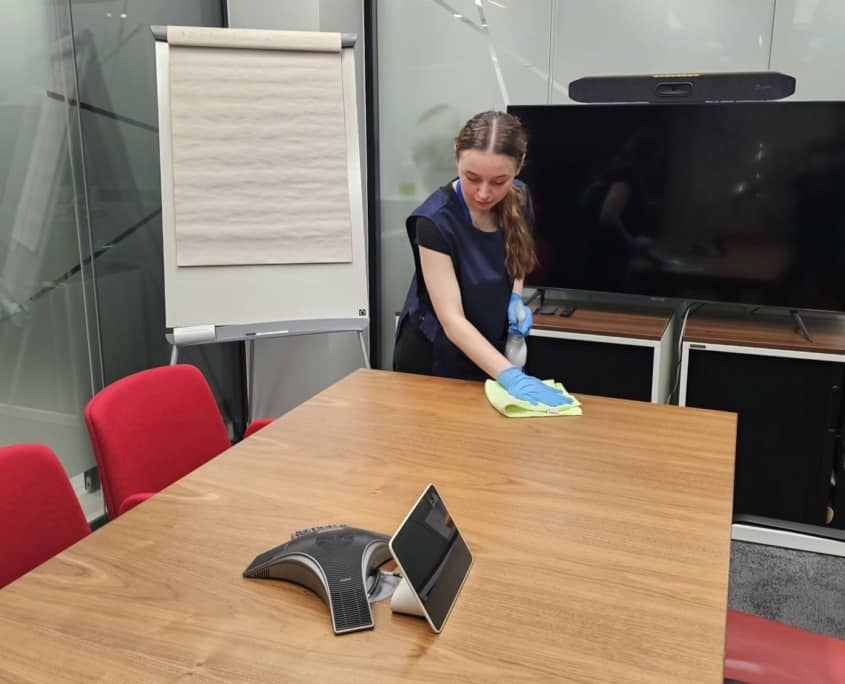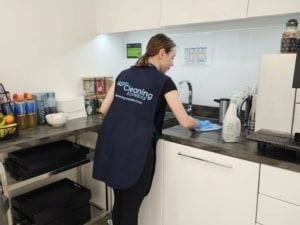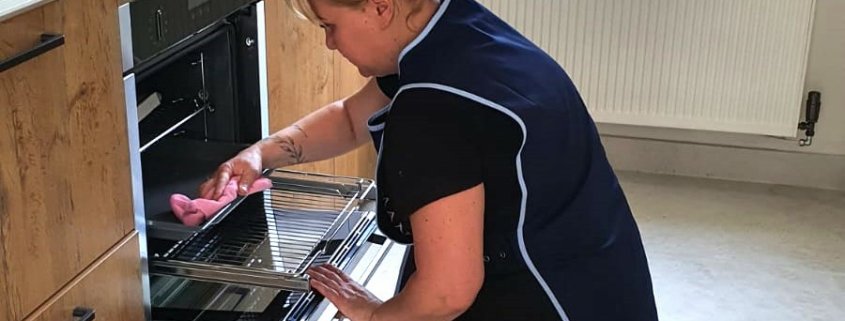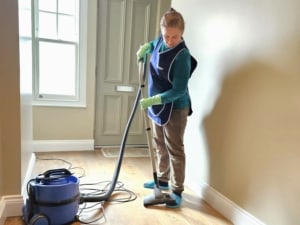
It’s fairly standard for companies to outsource their office cleaning to an external company. Not only is it more cost-effective but it’s also the best way to ensure high quality and consistency of service.
However, this can present issues around office security, particularly with customer data or sensitive business information. This article will cover some tips for how to keep your office secure when outsourcing your cleaning.
Keeping your office secure around cleaners

Partner with a Reputable Company
The first step is to partner with a reputable cleaning company that has a verified record of working in sensitive environments. Check a company’s reviews, see if you can have a list of some of its previous clients, and even try speaking to some of these clients if possible.
Also, ask what kind of background checks the company does on its cleaning staff. At the very minimum, this should include right-to-work checks, but it can help if the company performs DBS checks on its cleaners. If so, this is a good sign that the cleaning company can handle working in sensitive environments.
Secure Sensitive Areas or Documents
It’s likely your company already has these policies in place, but if it doesn’t then they’re worth implementing. Define secure or restricted areas where sensitive information is stored and limit access to these areas for cleaners. Sensitive locations might include certain offices, servers, and so on.
Similarly, ensure confidential information is always locked up in filing cabinets, desk drawers, etc. Again, this is a fairly standard security policy, but it’ll be helpful to always double-check before external cleaners are due to visit.
Ensure that cleaners only have access to necessary areas. Generally, outsourced cleaning services will cover the “main” areas of your office, such as kitchens, bathrooms, communal areas, and so on. If sensitive rooms need cleaning, follow the guidance in the next point.
Set Up Security Protocols
It may be necessary for cleaners to enter secure areas every now and then to clean. If so, there are a couple of things you can do to ensure your information is protected.
First, limit cleaning to your opening hours when your employees are present. While this might be a bit more disruptive than having cleaners in after hours, it’ll help limit unsupervised access to sensitive areas.
If this isn’t possible, then ask security staff or employees to supervise access to sensitive areas outside of your opening hours. This isn’t the most ideal situation, but it’s certainly better than anything happening to sensitive data!
Next, ensure any outsourced cleaners have appropriate ID and/or company badges. If you print your own badges in-house, you can make ones for cleaners, which can also ensure they only have access to certain rooms. Cleaners will typically carry their personal company ID, but there’s no harm in giving them specific IDs for your company.
Finally, adhere to your guest logging policy. This can differ between companies, but usually consists of a book that guests sign with the time of entering and leaving the building. If you have one of these, make sure cleaners sign it every time they visit.
Maintain Internal Training Standards
Along with monitoring your external cleaners, it’s essential to maintain your staff’s security training. Specifically, you should educate staff on how to prepare workspaces for cleaning visits. This might include locking away documents, locking or shutting down computers, and shredding any sensitive waste.
Also, if security is a top priority in your company, it can help to let your staff know when your cleaning visits are due. This ensures employees have enough time to prepare their workspaces and take extra precautions if needed.
Set Expectations with Your Cleaning Company
Once you’ve chosen a cleaning company, it’s important to set clear expectations with them regarding your company’s security policies. Start by providing a copy of any internal security documents so the cleaning company can confirm that it’s happy to adhere to them.
Also, request the same cleaners every time if possible. This is fairly standard for regular cleaning jobs anyway, but the benefit of having the same cleaners is familiarity and consistency. It should mean that you don’t need to constantly create and check IDs for new cleaners, too.
During your consultation with the cleaning company, establish a clear checklist of areas that need cleaning as well as any rooms to avoid. There’s no harm in being clearer than you think is necessary, so spend plenty of time setting your standards.
Sign Necessary Contracts
Cleaning companies will have their own contracts that cover work expectations, payment schedules, etc. However, it’s reasonable for you to have your own contract or confidentiality agreement. It would essentially be like an NDA that covers expectations, privacy, and security agreements.
In this document, establish clear liability for any breaches of confidentiality or your internal security protocols. While it’s not necessary to lay out all the specific steps of a breach, it’s important to state whether you expect it to lead to a prosecution, audit, fine, etc. If you have an internal legal team, get them to advise you and help draft up a suitable document.
Establish Incident Response Plans
You may have an incident response plan already for things like data and security breaches. If so, adapt it slightly to cover external cleaning staff. If you don’t, now is the time to set one up!
It should include things like notifying the cleaning company, police, and security personnel. Make sure it also outlines steps for relevant investigations and audits, and clarify the process with any relevant staff members.

Final Thoughts
It’s important to balance quality cleaning with appropriate security measures in a secure workplace. Provided you take steps based on the tips above, you should be able to maintain a high level of security while outsourcing your cleaning needs to an external company. Regardless, make sure you constantly monitor and update your security processes to ensure vigilance. If you need more assurance, then you can explore security solutions from Opem Security for installing CCTV in your offices to help monitor your cleaners.

